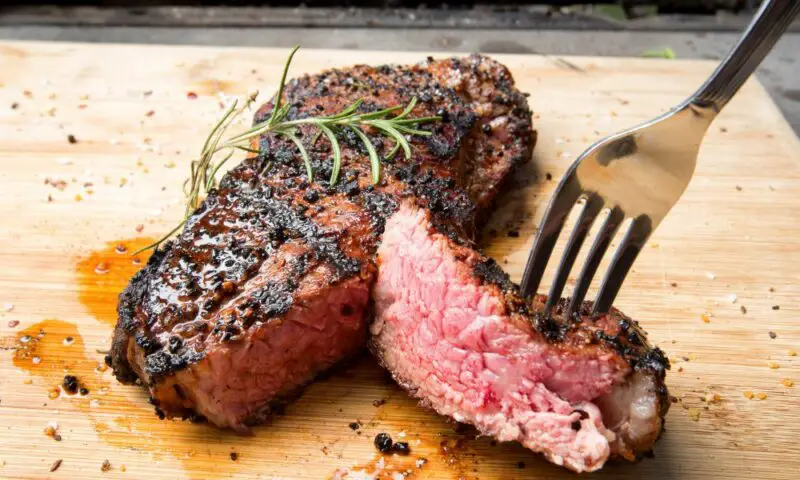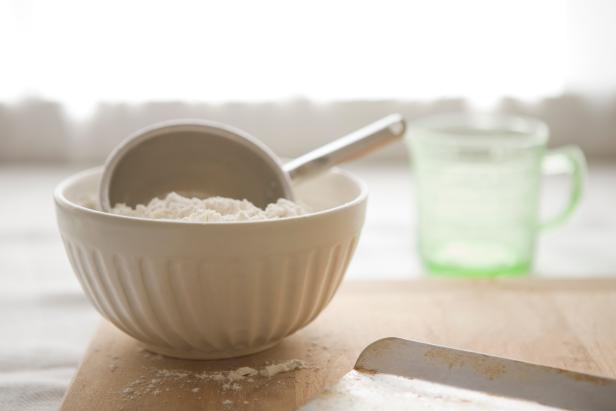Meat is a staple in many households across the world. It’s packed with proteins, minerals, and vitamins that are essential for the human body. However, just like any other food item, uncooked meat can easily spoil, leading to dangerous consequences for those who consume it.
The question is often asked: does spoiled meat taste bad when cooked? This article will explore this issue comprehensively to help readers understand what causes meat to spoil and whether cooking it will make a difference.
Understanding Meat Spoilage
Meat spoilage occurs when bacteria or fungi start to grow on the surface of raw meat, breaking down its molecules and producing toxins. These toxins are harmful to human health and can cause food poisoning if consumed.
It’s easy to detect spoiled meat by using one’s senses. Spoiled meat smells sour or rancid, appears slimy or discolored, feels sticky or tacky, and has an off-taste. If you notice any of these signs when handling raw meat, discard it immediately.
Consuming spoiled meat can lead to severe health problems ranging from stomach cramps and diarrhea to more serious illnesses such as salmonella or E.coli infections.
Cooking Spoiled Meat
Many people think that cooking eliminates all bacteria and toxins in spoiled meat; as such, they believe that cooking spoilt meats is safe. Unfortunately, this assumption is wrong. Cooking only kills some microbes at specific temperatures for extended periods (recommended times vary according to the type of organism); therefore cooked rotten meat carries high numbers of bacterial cells even after treatment.
Effect of cooking on taste and texture of spoiled meat varies depending on the extent of spoilage before cooking removed noxious gases responsible for the characteristic smell plus decomposed molecules present that give a putrid flavor which are causal determinants if using unfamiliarity tests. Experiences among consumers differ about cooked stale foods some do not mind while others find their taste unbearable.
Despite being cooked, spoiled meat can still pose a health risk. Consuming such meat can cause serious health problems, including food poisoning and other illnesses. Thus it is not safe to cook spoiled meat as it is a safety risk for human consumption even when the rotten parts surface appears dried or removed prior.
Factors Affecting Taste of Spoiled Meat when Cooked
Several factors affect the taste, texture, and overall quality of cooked spoiled meat:
- Type and extent of spoilage: The type and extent of spoilage determine how much the flavor will be affected. Certain microbes produce toxins that are more long-lasting than others, leading to more extensive damage.
- Type and cut of meat: Different types and cuts of meats may react differently when they go bad.
- Cooking method, temperature, and duration: These three factors can have a significant impact on the final taste of cooked spoiled meat.
Common Culinary Myths about Spoiled Meat
Several myths exist around what happens when you cook stagnant foods. Here are some common ones debunked:
- Cooking kills all bacteria – This is untrue; cooking only reduces bacterial numbers but may not kill all bacterial strains.
- You can tell if meat is safe to eat by smelling it – While an off-smell may indicate that something is wrong with the meat, the absence of odor does not guarantee that it’s safe for consumption.
- Rinsing with vinegar or lemon juice makes it okay to eat – Vinegar or lemon juice cannot counteract toxin production; besides consuming late food with such condiments makes for another unpleasant eating experience.
Safe Handling Practices for Meat
To prevent food poisoning from rotten products resulting in adverse events, always follow these guidelines:
- Proper storage: Store raw meat in airtight containers at below 4 degrees Celsius to delay decomposition rates.
- Proper hygiene practices: Wash hands before handling raw meats while regularly clean equipment used for slicing, handling or packaging.
- Proper cooking practices: Ensure meat products reach the right temperature recommendations to eliminate bacterial cells and toxins completely.
Testing for Spoilage before Cooking
If you are unsure about the quality of your raw meat, you can test it to determine if it has gone bad. Here are simple tests you could use:
- Color examination: Darker patches on the surface of raw meat indicates spoilage; this also applies according to some butchers when buying fresh produce with a red color hint of purple is a sign of freshness.
- Texture assessment: Spoiled meat may feel slimy or sticky.
- Smell test: If the meat smells pungent, rancid, or sour, it’s probably spoilt.
Conclusion
While consuming spoiled meat can be risky and lead to serious health problems, cooking does not necessarily guarantee safety. Inadequate refrigeration or leaving cooked food out in hot environments provide an opportunity for bacteria to reproduce rapidly leading to contamination rendering cooked meats harmful even after boiling thus verifying sanitation protocols at regular intervals help avoid waste and outbreak of foodborne illness symptoms . Ultimately prevention is key ensuring that proper storage temperatures, hygiene whilst handling meats must remain top priority. Lastly if in doubt discard to maintain excellent reproductive health.
Q&A: Does spoiled meat taste bad when cooked?
Q1. What happens when you cook spoiled meat?
If you cook spoiled meat, it may not necessarily taste bad. However, that doesn’t mean it’s safe to eat. Cooking will kill off some bacteria that might be lurking on your meat, but it won’t get rid of all of them.
Q2. How can you tell if meat is spoiled before cooking it?
Before you cook any type of meat, inspect it closely and check for any signs of spoilage such as a foul odor or slimy texture. If the color has changed dramatically or if the packaging appears compromised in any way, do not cook or eat the meat.
Q3. Is it safe to eat slightly spoiled meat if cooked well?
Even if cooked well, eating slightly spoiled meat is not recommended as there may still be some dangerous bacteria present. It’s better to err on the side of caution and throw away any questionable meat rather than risk getting sick.
Q4. Can marinades mask the taste of spoiled meat?
Marinades can mask the taste and smell of some types of spoilage in meat, which could potentially lead to food poisoning for those consuming the dish. It’s best to use fresh meats for marinading purposes and discard any meats that have started to go bad before using them in a recipe.





